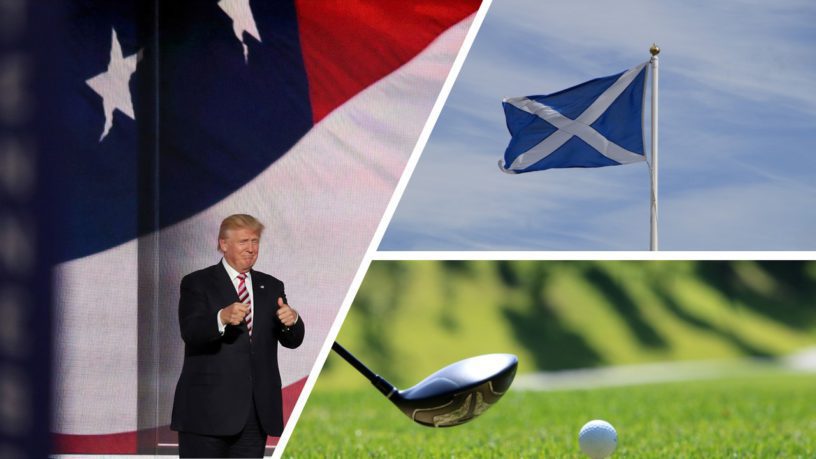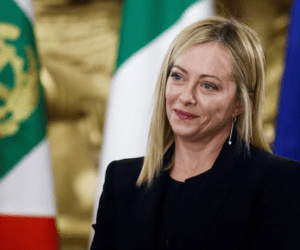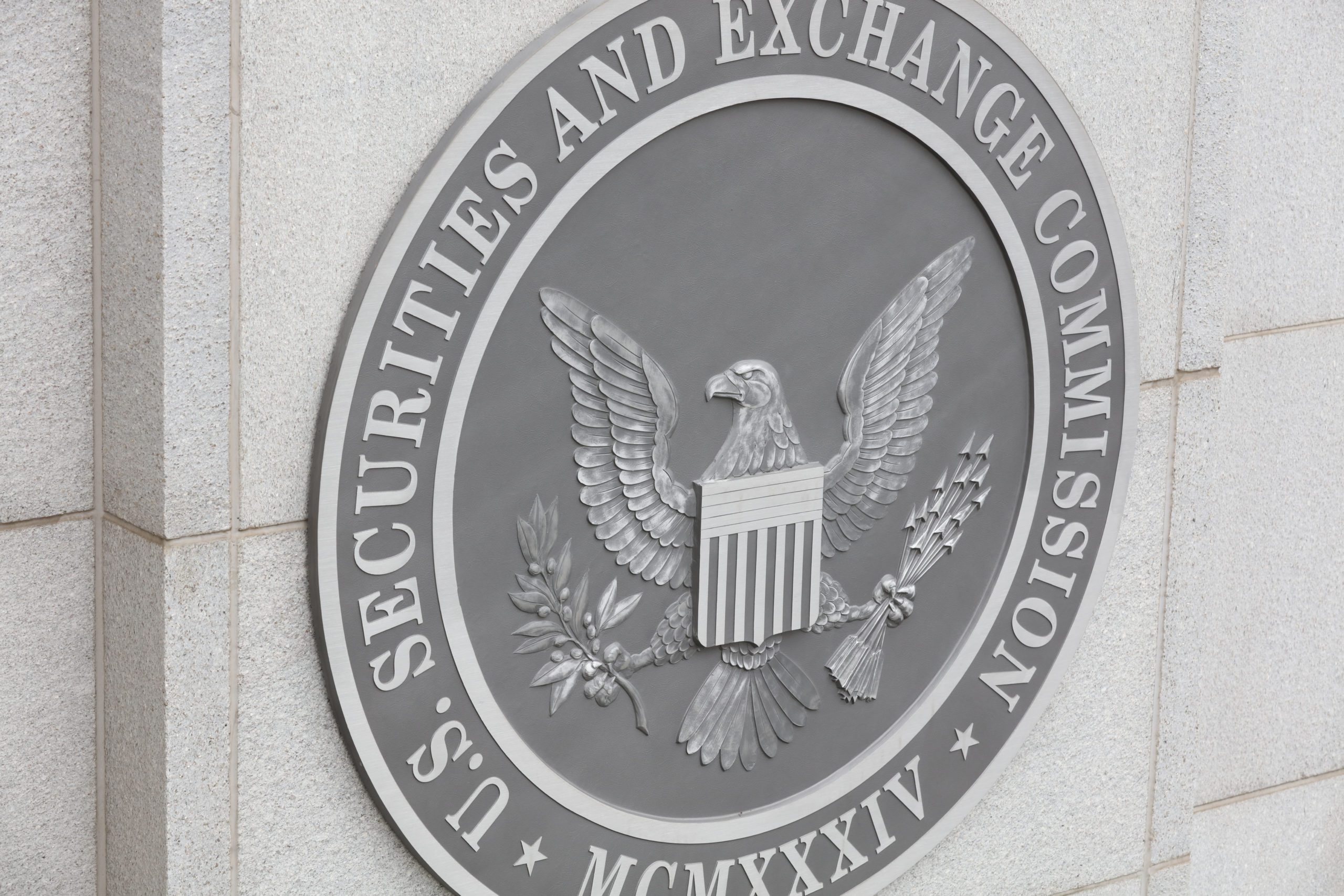By Elizabeth Hearst for AMLi
It is a fresh difficulty for Trump, who this week it was announced faces criminal investigation from the New York Attorney General.
The Scottish Government is facing a fresh legal challenge for rejecting calls to investigate former US President Donald Trump’s “all-cash” purchase of two golf courses.
Global human rights group Avaaz has filed a petition to Scotland’s highest civil court, after the Government decided not to fulfill an “Unexplained Wealth Order” on President Trump’s purchases.
The petition demands a judicial review of the Government’s decision not to investigate President Trump. The vote, brought by the minority Scottish Green Party was defeated 98 – 32 back in February, following calls by MPs to investigate the source of funds used by the Trump Organisation to purchase two golf courses in 2006 and 2014.
Scottish Government MPs voted against the motion, with the Justice Minister and member of the Scottish National Party (SNP) Humza Yousaf arguing that “there must not be political interference in the enforcement of the law”, adding that Unexplained Wealth Orders should come from law enforcement rather than politicians.
Unexplained Wealth Orders (UWOs) were introduced by the British government in 2018, in an effort to crack down on illicit funds and money laundering in the country. The Criminal Finances Act 2017 allows investigators to freeze assets if they believe that funds used to invest in them are the “proceeds of money laundering or obtained from criminal activities”, with the National Crime Agency (NCA) employed to seek UWOs.
These orders place the burden on owners to fully disclose the source of funds and all relevant assets, however the number of successful UWOs have been limited since their introduction. Although these orders do not automatically trigger criminal proceedings, if the source of funds is unexplained, this could mean a seizure of substantial assets by law enforcement.
As reported by Euronews, this 13 page petition alleges that a “flawed legal interpretation” gave MPs reason to reject the motion, and added that “such continued misapplication of the law would be contrary to the rule of law”.
Mr. Yousaf has previously stated that the country’s Civil Recovery Unit should “undertake the investigatory role”, rather than parliamentarians. Such basis forms the core of the Avaaz challenge, who have requested the Court of Session to rule that Scotland’s elected representatives have “sole responsibility” to determine whether to apply for a UWO, and cannot “delegate that responsibility to other people or institutions”.
Avaaz also argues that Scotland’s MPs have failed to “perform their duty”. They maintain that the legal standard for issuing a wealth order against President Trump has been met. Should the Court of Session rule in favour of Avaaz, the Scottish Government could be placed in an untenable position.
Opposition members of Scotland’s Greens, Labour and Liberal Democrat parties are highly critical of the SNPs interpretation of the 2018 law and decision to refrain from any further investigation.
Nick Flynn, legal director at Avaaz told Euronews that “it raises eyebrows as to why Ministers are not availing themselves of this ability to put questions to the Trump Organisation”, adding that “if Trump can’t explain the source of the money, then the Scottish Government has the responsibility to take action”.
Last year, Patrick Harvie, leader of Scotland’s Green party said “big questions remain over Trump’s business dealings in Scotland”, adding that the former President’s purchases of two multi-million pound golf courses was “part of Trump’s huge cash spending spree in the midst of a global financial crisis, while his son was bragging about money pouring in from Russia”.
President Trump forked out more than $300 Million in cash when he purchased the Trump Aberdeen golf course in 2006 and Trump Turnberry in 2014, despite filing for bankruptcy through Trump Entertainment Resorts in 2009.
President Trump’s fourth bankruptcy through Trump Entertainment Resorts came after the company missed a $53.1 Million bond payment. His previous bankruptcies came through Trump Taj Mahal in 1991, Trump Castle Associates in 1992 and Trump Hotel and Casino Resorts in 2004.
President Trump’s first venture on Scottish isles came in 2006 when he purchased a 1,400 acre site north of Aberdeen at Menie (Balmedie), Scotland, where he vowed to transform the land into a £1 Billion golf resort.
In 2014, President Trump purchased Trump Turnberry for over $60 Million, and reportedly pumped more than $150 Million into the property, which posted more than £23 Million in losses in 2016.
In February, his son, Eric Trump who is listed as a director of the Scottish golf courses said that those who supported calls for the UWOs were “advancing personal agendas”, adding that the Trump Organisation had “made an overwhelming contribution to the leisure and tourism industry”.
In 2017, CNN reported that President Trump’s first bankruptcy venture, the Trump Taj Mahal casino broke anti-money laundering rules “106 times in its first year and a half operation” in the early 1990s.
It’s alleged that the casino repeatedly failed to properly report gamblers who cashed out “$10,000 or more in a single day” according to the report. The casino was slapped with a $477,000 fine in 1998 by the Treasury Department as a result of these breaches.
Despite President Trump’s denial that funds sourced from Russia were used to buy the Scottish golf courses, there can be no doubt that the former President’s links to Russia and particularly the Russian underworld are clear.
In an opinion piece in 2019 for the Washington Post, Craig Unger said: “Collusion or not, President Trump and the Russians are thick as thieves.” His comments come after it was revealed that “at least 13 people with known or alleged links to the Russian Mafia held the deeds to, lived in or ran criminal operations out of Trump Tower in New York or other Trump properties”.
Unger added that many of these individuals “used Trump-branded real estate to launder vast amounts of money by buying multi-million dollar condos through anonymous shell companies”.
According to Unger, real estate development company Bayrock Group, was based in Trump Tower and “had ties to the Kremlin”, and subsequently came up with a “new business model to franchise Trump condos after he lost billions of dollars in his Atlantic City casino developments, and helped make him rich again”.
With hundreds of millions of dollars invested in golf clubs around the world, and those golf courses hemorrhaging funds, it seems strange that President Trump would continue to snap up these plots after posting serious financial losses. So where is the money coming from?
Veteren golf writer James Dodson revealed that in a conversation with Eric Trump in 2013, when asked about the financing of these investments and the precarious lending environment, Eric said: “We don’t rely on American banks. We get all the money we need from foreign investors”, adding that “we get all the money we need to get right out of Russia”.
Although Eric strenuously denies these claims, with a spokesperson telling Euronews that Dodson’s recollection was “incorrect”, President Trump is currently facing 29 lawsuits and four criminal investigations in the United States.
Share this on:
Follow us on:











